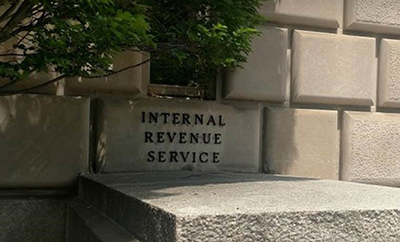
MBA Lends Support for Bill that Would Curb IRS/Treasury Account Queries

The Mortgage Bankers Association sent a letter of support last week To Sen. Tim Scott, R-S.C., who introduced a bill would prevent the Internal Revenue Service and the Treasury Department from imposing unusual reporting requirements on financial services providers to track and submit customer account information.
The IRS/Treasury proposal would require providers of financial services to track and submit to the IRS information on the inflows and outflows of every account above a de minimis threshold of $600 during the year. While intended to help the IRS target wealthy tax dodgers, the unintended consequences of the overly broad proposal would directly impact almost every American and small business with an account at a financial institution and impose dramatically new reporting requirements of financial institutions.

Scott’s bill, S.3056, the “Prohibiting IRS Financial Surveillance Act,” would prohibit the IRS from requiring banks and other financial institutions to report certain bank account information, including private bank account deposits or withdrawal activity, for tax enforcement purposes. Scott introduced the bill Oct. 21.
MBA Senior Vice President of Legislative and Political Affairs commended Scott for introducing the bill. “MBA is concerned that the Treasury Department’s new tax information reporting plan, if enacted into law as part of the proposed reconciliation package under discussion, would capture many routine mortgage-related transactions, result in significantly increased tax compliance costs for individuals, families and small businesses, and present privacy concerns regarding potential data breaches,” he wrote.
Killmer said while MBA shares the Treasury Department’s concern that those subject to U.S. taxation should pay the full amount legally due, “we believe the proposal under discussion, which your legislation seeks to blunt, is not the appropriately calibrated answer.”
Earlier this month, MBA joined more than 100 industry trade groups in a letter to the Senate opposing the Treasury IRS proposal.
“This proposal would create serious financial privacy concerns, increase tax preparation costs for individuals and small businesses and create significant operational challenges for financial institutions,” the letter said. “These new proposed exceptions only add significant operational complexity for financial institutions and will not materially reduce the tens of millions of American taxpayers who would be subjected to the new reporting regime. We continue to urge members to oppose any efforts to advance this ill-advised new reporting regime.”
The letter said the program is “costly for all parties, not fit for purpose and loaded with the potential for unintended and serious negative consequences. As associations representing a broad cross-section of financial and business interests, we urge you to oppose any efforts to institute this new reporting regime.”
